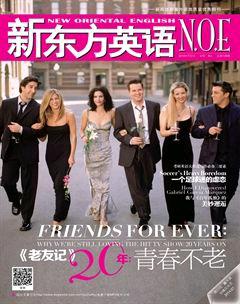留學文書寫作方法之如何表現出自信
在前幾期文章里,我們談到過寫留學文書切忌高調(即自我表揚),不要把自己塑造成“高大上”的形象。要知道,這種自我表揚的做法既不可取又不高明,因為“閱人無數”的招生官一眼就能看出文書里哪些是“干貨”,哪些是隨意夸大的內容。在某種程度上,自我表揚其實是在貶低自己,可能會給人留下膚淺和浮夸的印象。不過,申請者也不能過于低調,沒有必要連得了全國奧數競賽第一名也歸功于運氣。那么,在寫留學文書時,申請者到底要怎樣做,才能做到既不張揚又不過于低調呢?答案是兩個字:自信。這里所謂的自信,說得通俗一點,就是申請者在文書中要表現得不卑不亢,落落大方。但更精確地說,其實是“不卑但稍微有點亢”。
那么,要怎樣做到“自信”呢?筆者建議申請者從兩個角度入手:一是內容,二是表達。內容指申請者突出的成績,與眾不同的經歷,對自己的家庭、學校、社區、種族、文化等持有的獨特觀點等。簡而言之,申請者在學習、工作或生活中與眾不同的經歷等素材是值得大書特書的。那么,要怎么書呢?這就牽涉到第二個問題——表達。申請者在表達想要說的內容時,要掌握一個原則:對所敘述的事情進行獨立、客觀、正面的思考。有些申請者在文書中經常就中美在經濟、文化、科研、教育、價值觀等方面進行比較,得出的結論往往是“中國在這些方面還很落后,因此,我希望去美國學習先進的科學文化知識”。從某種角度看,這確實是事實。但是,申請者也沒有必要一味地去揭自己的短處,要做到伸縮有度。
案例分析
下面我們通過兩個真實案例來談談在文書寫作中如何做到自信。
文書案例1
首先,我們來看一位多次借讀、轉學的申請者提供的文書原稿,大致內容如下:
從小到大,由于父親工作的關系,我隨他從溫州到上海、北京,到杭州再回北京。期間,我借讀、轉學的學校超過十所。到北京我讀的是私立學校,它一年的學費是公立學校的七倍,但是學校的設施齊全,校風開放。在這里,學校提供了200多種選修課程,從針織到表演無所不包,我選修了攝影和心理學。自由的學習氛圍使我的興趣變得廣泛,同時也開闊了我的視野,但是我付出了代價:我雖然可以在北京參加中考,但因為是外地生,高中后依舊不能讀北京公立學校。而如果我繼續讀私立高中,將不能在北京參加高考。于是我回到浙江,進入了公立學校。在這里,高考競爭激烈,成績就是一切,我無法在這樣的環境中脫穎而出。跟隨父親“四處漂泊”的生活讓我與所到之處的發展和變化息息相關,但是這些地方容不了我。
中文原稿向我們描述了“我”從小跟隨爸爸從一個城市遷移到另一個城市,后來因在北京無法參加高考回浙江讀書,但回去后又無法適應當地學習氛圍的尷尬境地。申請者在文書結尾也想要表達自己生活經歷的好的一方面,但是卻點不出來它好在哪里,全文彌漫著一股“悲壯”的情緒,更多的是“我”對自己輾轉各地的無奈。殊不知,在西方國家,尤其是在美國這個“車輪上的國家”(the country on the wheels),搬遷(relocation)是一件司空見慣的事情。在美國文化里,relocation這個詞毫無貶義色彩,人的流動性(mobility)是一個亮點。
因此,我們建議申請者在文書中加入以下內容:“我”沒有因自己的經歷而郁郁寡歡,在多次的搬遷中,“我”的閱歷豐富了,適應能力變強了,思考問題的方式也變得成熟了。同時,搬遷又給“我”難得的機會去深入觀察不同地區的人和事,從而讓我對事物有了更深刻的思考,這又和“我”想申請學社會學專業有了聯系。對“我”而言,除了在學校接受的傳統教育,搬遷可以說是“我”在生活中接受的另一種教育,而且是非常有益和有趣的“教育”。全中國有難以計數的學校,但是幾乎沒有一所能夠為在校學生提供如此寶貴的教育機會,而“我”卻得到了。
如此一來,申請者的自信便在字里行間展露無遺,同時既沒有自夸,也沒有自卑,給讀者留下的是自信的形象。請看以下參考范文:
Chinas Imperial examination system, called the keju, began in about 200 B.C. and lasted 2,000 plus years. It was an official method for recruiting bureaucrats. While the system was laudably intended to ensure that appointment as a government official was based on merit and not on favoritism or heredity, the topics candidates were tested on centered around poetry and Confucian classics and had nothing to do with leadership or problem-solving skills necessary to tackle the political, economic, legal, diplomatic and social issues of the time. They had nothing to do with science and technology, because science and technology as a concept or an academic discipline did not exist. The system itself was far removed from the realities of everyday life. The keju was abolished in 1905, but its influence was vast. Many other countries, such as Japan, Korea and Vietnam, followed Chinas example at one point or other.
Even to this day, a student in China, much like the candidates of the keju, is judged almost exclusively by grades and academic achievements. When I told my friends and teachers that I excelled in photography or that I took an elective class on psychology, their typical response was that those were not going to get me into college because they were not subject areas being tested. There is something that makes me stand out wherever I go: my fathers legal profession requires that he move frequently. As a result, I have moved from one city to another and have transferred from one school to another, no fewer than ten times. I have seen South China and North China and I have seen coastal cities on the east and landlocked cities on the west. Not only have I seen these places, I have lived in them for an extended period of time, long enough to observe the geographic, linguistic, ethnic and social diversity and to be able to compare and contrast levels of economic development and cost of living and to analyze and critique numerous social issues either limited to a location or commonly applied to all. I know my relocation experiences and my social observations and interpersonal skills and unique perspectives developed as a result of my migration do not seem to count for much in the Chinese educational environment. However, I do believe that this is a part of my education, and a very important and valuable part too.
I should consider myself fortunate because each time we move my father always wants to make sure that I go to the best school there and that my academics do not get disrupted. On my part, I succeeded in assuring him that I could handle frequent transitions well and that I could survive and thrive anywhere I go. As I contemplate on my biggest relocation ever—going overseas for my college education—I have to thank my father for having prepared me over and over again for the life of a sojourner.
評析:在參考范文中,申請者一改中文原稿中的悲觀情緒,把敘述重點放在自己的經歷所帶來的好處上:獨立的思考能力、強大的適應能力、豐富的人文地理知識。另外,申請者還提到中國從科舉制到現在的高考向來只看重成績,而他本人卻深知自己的獨特經歷很有價值,對學習社會學也有幫助。我們相信,這樣的申請者會受到美國招生官的青睞。
文書案例2
接下來,我們再看一位自認為各方面都不如人的申請者提供的文書原稿,大致內容如下:
“這孩子怎么這么笨!”小時候,我有時會聽到家人這么評價我。我媽媽說我小時候學會走路和騎自行車都比同齡的孩子晚。小學時,班里的同學都會認鐘表,而我學了好幾個晚上才學會;學算術,我加減乘除混合算式總是搞不清。學小提琴,我考中央音樂學院六級,考了四次才通過。家人的評價讓我很不舒服,但是也讓我明白自己不是那種新東西一學就會的“聰明人”。我知道自己要笨鳥先飛,我相信勤能補拙。在學習方面,我會在下課后比別人多花時間去思考,多做一些題以鞏固知識點。小提琴方面,我給自己規定每天比別人多練兩個小時。就這樣,我各方面都發生了好的轉變。學習成績大有進步,小提琴方面開始獲得一些獎項。家人對我的評價一直刺激著我,使我在人生任何一段旅程上都會確定一個目標,并去長期努力。一路前行。
美國學校希望學生對自我有正面的認識,不要因為在某方面不如人而自卑,要看到自己身上的閃光點:也許你沒有數學天分,但小提琴拉得好,有音樂天賦;也許你不善言談,但是有體育方面的特長;也許你學習不好,但是人緣好,有領導才能,等等。對于孩子的成果,美國的父母總是會對孩子說:“Excellent.”而中國的孩子沒這么幸運,他們往往是在批評聲中長大的,就像本文中的“我”。
所以,我們建議申請者換個角度寫。我們讓他不要采用妄自菲薄的方式講述自己笨鳥先飛的成長經歷,而是表明自己很欣賞美國以激勵為主的教育方式,同時對中國以批評為主的教育方式也不持否定態度——申請者比較真實地說出了自己以后很有可能在兩種文化中吸取養分,會選擇比較折中的方式方法。請看以下參考范文:
Unlike the United States where “wonderful,” “fantastic,” “good job” and “wow” are frequently and generously used as a means to encourage and motivate kids, China does not seem to believe in the value of positive feedback; not to the degree found among Americans anyway. The Chinese culture prefers criticism to praising, especially in parent-child relationships and, to a large extent, in teacher-student relationships as well. I am what Americans would call a late bloomer. According to my mother, I was at least half a year behind other kids my age in learning to walk and several years behind in bicycling. Academically, I was not initially advanced; not at all. I remember other kids in class were able to read clocks, and I could not; they could do mental calculations, and I had to resort to paper and pens. Even in violin, an instrument that I started playing early, I had to repeat the same exam for level 6 four times before I was promoted. I have heard my family members, including my parents, say “Why are you so dumb?!”
This is the type of environment I grew up in. I took it for granted. I never knew there were other ways to prod a child into action, nor did I expect my family or any adults who cared about me to do any differently. I did not like those negative comments, but I managed to cope. While I accepted that I could be slow to start with, I never accepted that I should remain a laggard (落后者). That was not where I wanted to be. I realized if I put in a little more extra effort and invested a little bit more time, I could catch up, and I did. Not only did I catch up, I became more advanced academically and musically than most of my peers.
In hindsight, negative feedback from my family, my teachers and my friends were not damaging or counterproductive, as some psychologists would say. It could be motivating, in my opinion. I doubt I will use the negative approach myself to my own children or any other kids in the future: not much anyway. But on the other hand, it would be hard for me to give credit when I see no credit is warranted. Id apply compliments sparingly, not lavishly. I am, after all, a product of the culture to which I belong. I can challenge it, I can even deviate (脫離) from it, but I cannot deny its indelible influence on me.
評析:在參考范文中,申請者能坦然面對自身笨拙的一面,而且對成長環境進行客觀分析,有獨立的思考,并得出自己的結論,這就是自信的表現。

